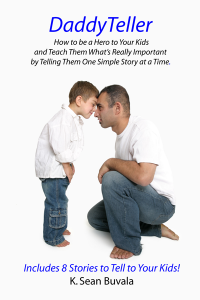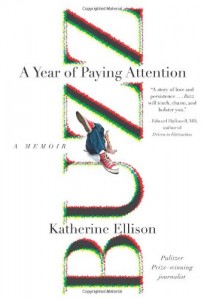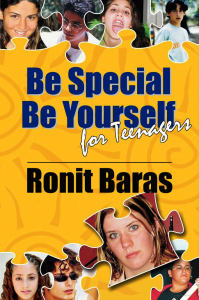|
|
December 4, 2013
Lots going on this time of year. (Props for taking time to read a blog.) We feel pressure to make the holidays “perfect.” Pressure to spend. Pressure to save. Pressure to get the kids to behave. We all have moments when we trade “nice” for B#$@%. We’re human and we get stressed. But when we show more Beast than Loving Parent, we are damaging our children. That’s a problem that keeps making problems. The good news? We are key to the solution.
The following article is an excerpt from my book: Teaching Kids to Be Good People (If you’re interested, it’s 50% off for the holidays Code 3MZQS83F)
I had the pleasure of interviewing Rachel Simmons the Wise for my podcast series. We talked about her book The Curse of the Good Girl: Raising Authentic Girls with Courage and Confidence. We also discussed how often parents engage in meta-conversations with their children (i.e., parent says one thing and an unspoken message churns just below the surface).
With all that doublespeak how can a t(w)een learn to be authentic and express the truth of her heart? Not very easily. And it isn’t just parents and daughters. As Rachel put it, no matter who you’re talking to or what relationship you’ve got, “there’s always a meta-conversation going on.”
Parent: Oh, you’re still playing that game.
Meta-message: I just know you won’t get your homework
done tonight and then what? You think I like being on your case? Well, I don’t! But if I don’t keep after you how are you ever going to get into a decent college?
Mini meta-message: You’re lazy and I’m disappointed in you.
________
Parent: Don’t you think your other jeans would look better with that top?
Meta-message: Those jeans are too tight and too low cut. They make you look fat and slutty. What will Grandma say when she sees you wearing that? She’s going to think I’m a terrible mother to let you dress that way!
Mini meta-message: You’re fat and you embarrass me.
________
Parent: How’s your buddy Ryan these days?
Meta-message: Are you two still friends? Did something
happen between you? Are you now hanging out with people I should be worried about? (Sigh) You and I used to be able to talk about stuff. Now you don’t tell me anything. What else are you hiding from me? Maybe I don’t even want to know!
Mini meta-message: You’re disloyal and untrustworthy.
________
I’ve been thinking about meta-messages and how I use them. Whether they’re conscious or not, communication patterns between people often determine who we like to hang out with and who doesn’t make our FAVS list.
 Josie 2009-2012 During the holidays a few years back, Josie and I snuck out of the house before anyone else was up. Because she was still full of puppy beans and needed her off-leash time, we headed for the nearby hills. She instantly vanished through the trees tracking deer and squirrels and nosing the underbrush for ticks thumbing a ride. While she was gone I walked on, enjoying the quiet light and the colors. Every so often I’d whistle for Josie and she’d reappear, sometimes from behind me on the trail, sometimes way ahead. We’d smile at each other and wag our tails. “Yes! Good dog!” Then I’d give her a treat. After each reunion she’d take off again and I continued hiking.
So it went for an hour. When I finally put her back on leash I thought about the meta-conversation we had and why Josie happily kept returning to me. The way I figure, it comes down to this . . . each of us, dog and human, prefers to hang with those who tell us we are good dogs.
It also helps if they give us treats.
_______________
We’re in the darkest days of the year, so how about lightening up? Catch someone you love in the act of doing something right. Drop the meta-messages and smile.

December 6, 2010
 "DaddyTeller: How to be a Hero to Your Kids and Teach Them What's Really Important By Telling Them One Simple Story at a Time" by K. Sean Buvala Today’s guest is K. Sean Buvala, professional storyteller. This guy’s good. How good? Well, in 2007 he won the annual Oracle Award by the National Storytelling Network for his work in the promotion of storytelling, including the development of storyteller.net, an online goldmine of resources for storytellers of all stripes and their audiences. So yeah, that’s how good!
Sean is the father of four beautiful daughters. That kinda sounds like the beginning of a story, doesn’t it? Sean is also the author of DaddyTeller: How to be a Hero to Your Kid and Teach Them What’s Really Important by Telling them One Simple Story At a Time.
According to Sean, the average dad spends “less than 30 minutes a day with his kids.” That’s not good. I know, I know, parents are busy. Apparently so are kids. On average our children spend four hours a day focused on TV, Internet and/or video games. That’s an awful lot of influence being pumped into them from… who knows where? If fathers want more of a hand in shaping the values and character of their kids… short of becoming stay-at-home dads, what can they do it? Great question! Stick around. We’ve got answers.
Listen to my conversation with Sean Buvala right here:
[QUICKTIME http://www.anniefox.com/podcast/FC023.m4a 300 300 false true]
If you have iTunes, you can subscribe to this podcast in the iTunes Store.
Or, you can download an MP3 version here.
Upcoming guests include:
Rachel Simon, author of Riding The Bus With My Sister and The House on Teacher’s Lane
Dr. Karyn Purvis, co-author (with Dr. David Cross, Wendy Lyons Sunshine) of The Connected Child: Bring hope and healing to your adoptive family
Judith Warner, author of Perfect Madness: Motherhood in the Age of Anxiety and We’ve Got Issues: Children and Parents in the Age of Medication

November 9, 2010
 "Buzz: A Year of Paying Attention" by Katherine Ellison Today’s guest is Pulitzer Prize-winning investigative journalist Katherine Ellison. A veteran foreign correspondent and writing consultant, Katherine is also the mother of two sons and the author of four books including The Mommy Brain: How Motherhood Makes Us Smarter and her new memoir Buzz: A Year of Paying Attention.
Katherine Ellison gives all she’s got to every professional assignment. (You don’t win a Pulitzer Prize for phoning it in!) One day, she was driving on the freeway, late for a meeting with a new client, when her 12 year old son, Buzz, who’s got ADHD, had yet another major melt-down. Katherine’s 60-mile per hour response was equally over the top. That’s when she decided it was time to put on the brakes, back-burner all other career plans and spend a year paying attention to Buzz and his diagnosis while chronicling her findings and her feelings. In the process she discovered that she too has ADHD (which explained so much about the challenges she’s faced as a journalist and a mom).
Katherine diligently researched and investigated a wide range of ADHD treatments currently available to exhausted, loving parents like herself . For millions of Moms and Dads around the country and abroad who want desperately to help their children with attention deficit disorders find ways to get more control over their behavior so they can be happier and more successful in the classroom and beyond, her book is a welcome and much-needed resource.
If you or someone you care about has a child dealing with ADD/ADHD, you don’t want to miss this interview.
Listen to my conversation with Katherine Ellison right here:
[QUICKTIME http://www.anniefox.com/podcast/FC022.m4a 300 300 false true]
If you have iTunes, you can subscribe to this podcast in the iTunes Store.
Or, you can download an MP3 version here.
Upcoming guests include:
Sean Buvala, author of DaddyTeller: How to be a Hero to Your Kids and Teach Them What’s Really Important By Telling Them One Simple Story at a Time
Dr. Karyn Purvis, co-author (with Dr. David Cross, Wendy Lyons Sunshine) of The Connected Child: Bring hope and healing to your adoptive family
Judith Warner, author of Perfect Madness: Motherhood in the Age of Anxiety and We’ve Got Issues: Children and Parents in the Age of Medication
Rachel Simon, author of Riding The Bus With My Sister and The House on Teacher’s Lane

October 17, 2010
 "Be Special, Be Yourself for Teenagers" by Ronit Baras According to humanistic psychology founder Abraham Maslow we’re all driven by needs. In Maslow’s Hierarchy of Needs, the most basic ones are our physiological needs (air, food, water, sleep, sex, etc.). No surprises there. If you’re consistently not getting what you need in this category, nothing else matters.
After our survival needs are taken care of, then come our need for Safety, Love/Belonging, Esteem, and finally Self-Actualization. It’s all pretty interesting stuff and can be very helpful when you think about human behavior. Most behavior is driven by a need. The most outrageous, over-the-top and often inexplicable behavior is driven by intensely felt emotions tied to these needs. When a kid or a teen acts out, instead of solely addressing what the child is doing, effective parents take a short cut and directly explore the need behind the behavior.
It all sounds like a solid system. Just get your needs met and be happy. Simple. Except what happens when one need is in conflict with another? For example the need for acceptance (which is huge for t(w)eens) vs. the need to be unique, also a big one with middle and high school students. That kind of conflict could spell trouble and often does.
My guest today, Ronit Baras, who has studied and written about these conflicting needs and how they affect the life choices of adults and teens. Ronit is the co-creator of the “Be Happy in LIFE” life coaching program and the author of the two self help books, “Be Special, Be Yourself for Teenagers“ and “In the Outback with Jasmine Banks“.
Ronit is an experienced educator as well as an international speaker. Among her clients are private institutes, schools, universities, public organizations, government bodies, educational associations, financial corporations.
For her community work, Ronit Baras has been nominated twice for “Australian of the Year.”
Listen to our conversation right here:
[QUICKTIME http://www.anniefox.com/podcast/FC021.m4a 300 300 false true]
If you have iTunes, you can subscribe to this podcast in the iTunes Store.
Or, you can download an MP3 version here.
Upcoming guests include:
Katherine Ellison, author of the memoir, Buzz: A Year of Paying Attention
Sean Buvala, author of DaddyTeller: How to be a Hero to Your Kids and Teach Them What’s Really Important By Telling Them One Simple Story at a Time
Dr. Karyn Purvis, co-author (with Dr. David Cross, Wendy Lyons Sunshine) of The Connected Child: Bring hope and healing to your adoptive family
Judith Warner, author of Perfect Madness: Motherhood in the Age of Anxiety and We’ve Got Issues: Children and Parents in the Age of Medication
Rachel Simon, author of Riding The Bus With My Sister and The House on Teacher’s Lane
 — Older Posts »
| |















